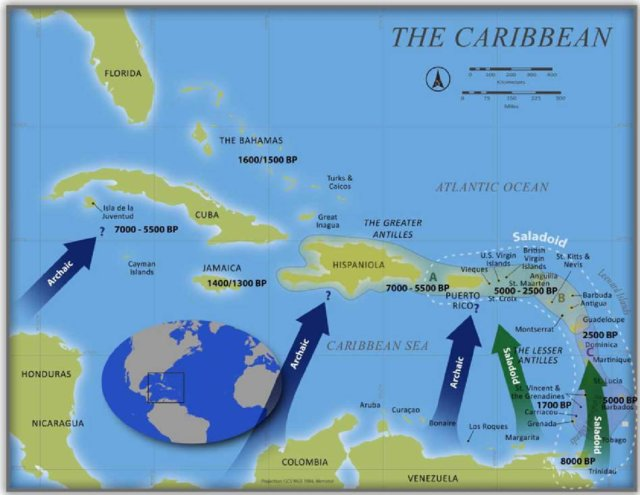Thx for having me @kstsosie @DecolonizeDNA! Today I will tweet about how ancient DNA (aDNA) 💀🧬can be used to revisit the historical record, & reconsider the stories of underrep & minoritized communities across the Americas 🧵1/ #DecolonizeDNA #DNADay (Img: Systema Solar) 

aDNA is the🧬that persists in ancient tissues like 🦷🦴💀, or the remains of 🦌🌿🐀🐚. It can inform us about evolution, ancient diversity & health. But bc of its age, aDNA is degraded and easily contaminated so we must handle it using lots of PPE, like this! 2/ #DecolonizeDNA 
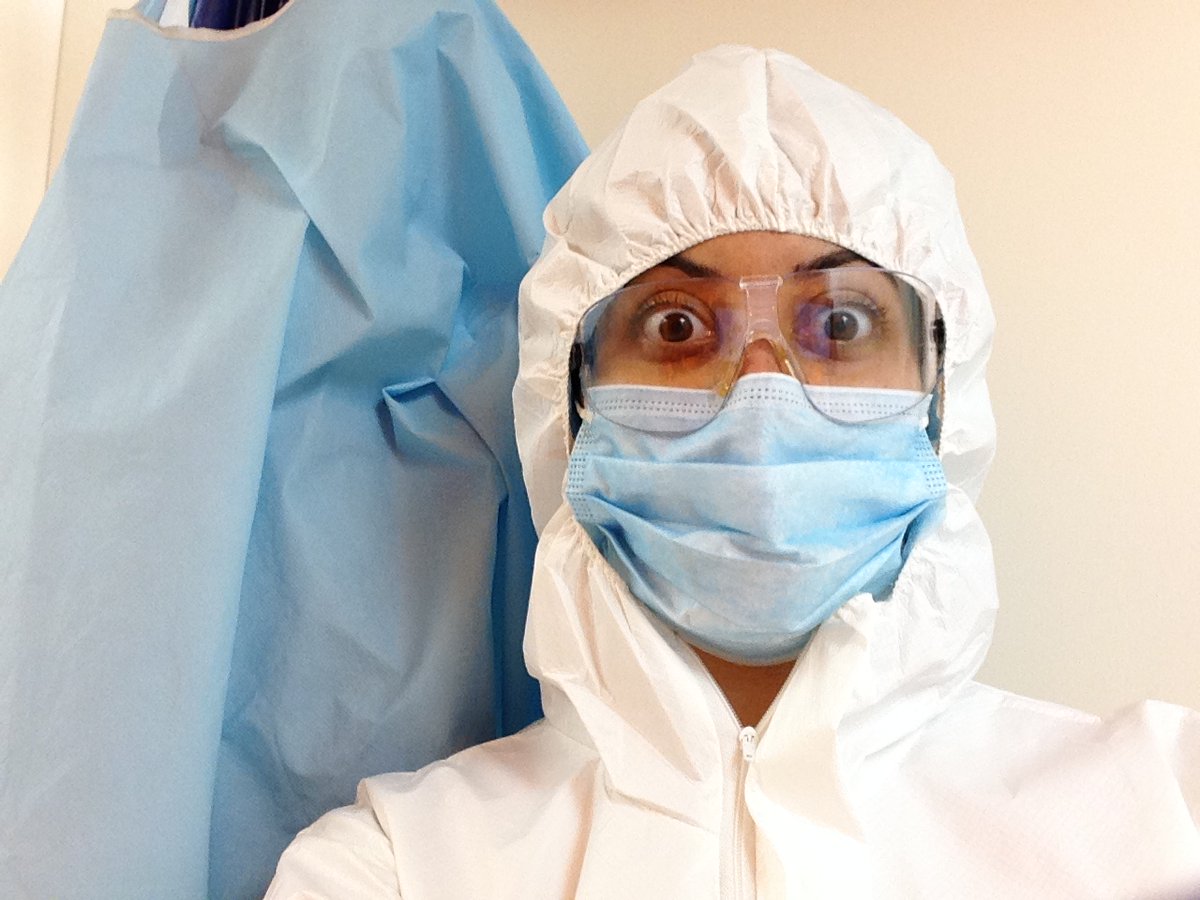
aDNA🦴🧬+ other lines of evidence🔍📋🏺⚰️💀can reconstruct past events & their impact in the present. This is a powerful 🦸🏽✊🏽way to understand the experiences of ppls who were marginalized, excluded or misrepresented in the written historical record 📜3/ #DecolonizeDNA #DNADay 

For ex: I study ancient Indigenous communities who lived in #PuertoRico🇵🇷& the Caribbean for >5K yrs ⌛️💪Thru #archaeology we know these were diverse & complex ppl w/dynamic interaction networks extending far beyond the Antilles 4/ #DecolonizeDNA #DNADay (Img: Hofman et al. 2018) 

But Indigenous Caribbean ppls were also the 1st #NativeAmericans to experience European colonialism. BC of this our understanding of their story is fragmented & biased towards the colonizer's perspective as described in historical✍️🏻📜🎨 (like this painting) 🤨5/ #DecolonizeDNA 
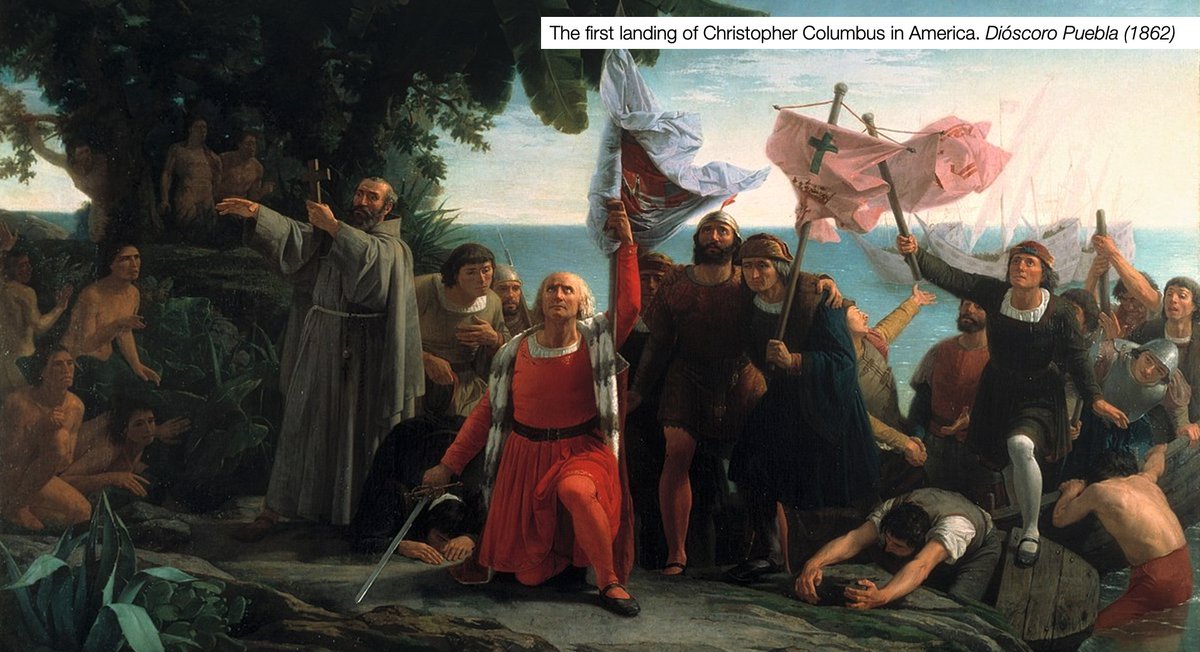
In 🇵🇷 & other Antilles, colonial documents say that native ppls died out by the 1600s. This led to common narratives of Indigenous extinction, despite the presence of islanders w/Indigenous cultural identities & oral histories 💬of Indigenous descent 🤔6/ #DecolonizeDNA #DNADay
These contrasting narratives, extinction vs survival, are fiercely debated 🔥in 🇵🇷, esp since 🧬 studies found present-day #boricuas #puertorican carry large proportions of Native American maternal ancestry in our mitochondrial genomes (mtDNA) 👵🏼🧬➡️👩🏻🧬➡️👶🏼🧬7/ #DecolonizeDNA 

Did some of this mtDNA ancestry come from native island ppls who survived colonization? To find out my colleagues and I used aDNA 🦴🧬 to investigate the origins, diversity and genetic legacies of Puerto Rico's ancient communities 8/ #DecolonizeDNA #DNADay bit.ly/2yBoQkO 
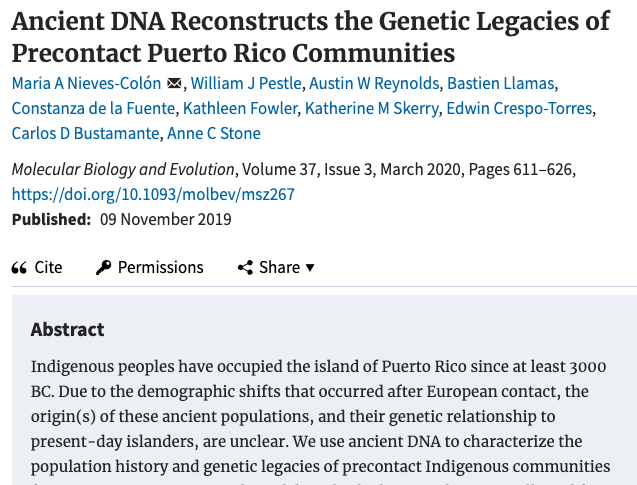
We sampled 🦴🦷of 124 ppl who lived at 3 pre-contact sites in 🇵🇷 incl. Tibes 👇. This was difficult bc aDNA does not preserve well in the tropics 🏝️🌞🌧️=☹️🧬. But we recovered 45 mtDNA genomes and compared them to those of modern islanders 9/ #DecolonizeDNA (Img: Enciclopedia PR) 

We saw that some ancient mtDNA lineages were lost over time, while #puertoricans also carry novel lineages. These differences reflect the impact of random #geneticdrift, as well as post-European contact #migration & #admixture 10/ #DecolonizeDNA (Img: bit.ly/2S5Lnx7) 
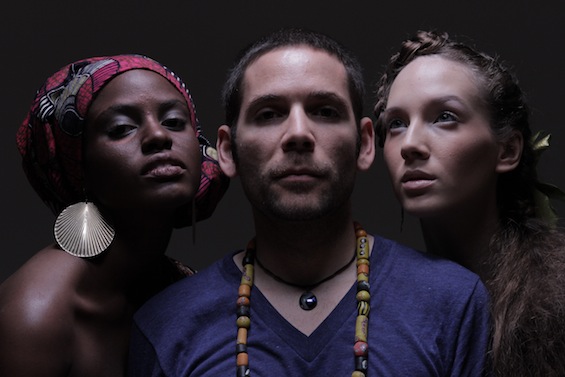
But despite the large-scale population shifts brought by colonization, we found that three3⃣ pre-contact mtDNA lineages survived into the present-day within the genomes of present-day Puerto Ricans 🙀🇵🇷✊11/ #DecolonizeDNA #DNADay
Why does this matter? Well, in PR Indigenous ancestry is central to ethnic & national identity. Pre-contact art forms are symbols of #boricua culture & political empowerment (especially bc of our continued quasi-colonial status🇵🇷-🇺🇸, topic for another thread😉) 12/ #DecolonizeDNA 

Yet this native pride coexists w/firmly grounded extinction narratives & the erasure of our Indigenous (& African) ancestors. Even my 10th grade history class textbook described 500 not 5,000 years of history! 🙄🤦🏻13/ #DecolonizeDNA #DNADay (Img: Amazon.com) 
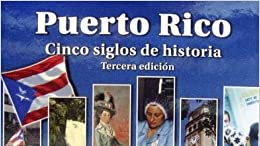
Indigenous activist & resurgent movements in the Caribbean & US diaspora have opposed the extinction narratives for yrs. But now 🧬 & 🦴🧬data are also influencing public discourse on Indigenous heritage, survival & identity 14/ #DecolonizeDNA (Img: americanindian.si.edu) 
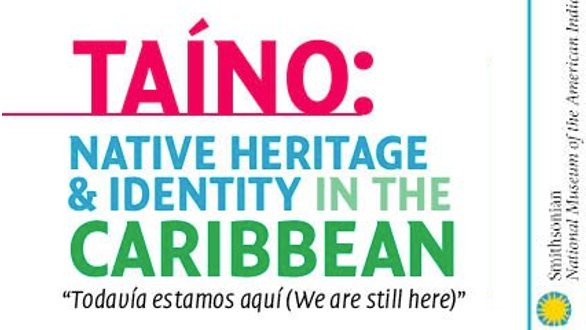
aDNA studies have identified🧬links btw present-day islanders & ancient Indigenous ppl. These findings challenge the prevailing colonial narratives describing the complete extinction of 🇵🇷 & Caribbean native communities 15/ #DecolonizeDNA bit.ly/3cNx8oB
Personally, I hope our work leads to a critical reassessment of contact period dynamics, further study of Indigenous Caribbean responses to colonization & a better understanding of native ppls role in shaping the current biocultural diversity of the Antilles 16/ #DecolonizeDNA
Our study also used aDNA to investigate the origins of pre-contact PR🇵🇷 communities & their relationship to other Caribbean groups. To read more about this check out our paper (bit.ly/2yBoQkO) & also see the work of others like @sankofadna @bitesizedna 17/ #DecolonizeDNA
Now the 🇵🇷 study is one example of how aDNA can revisit known history. But it's not the only one! Here is the work of a few other scholars who are also integrating aDNA w/other methods to study the past, and in so doing, disrupting hegemonic narratives✊ 18/ #DecolonizeDNA
.@RaquelFleskes et al. 2019 use aDNA + bioarch to investigate the identities of African ppls in the racialized labor system of 1700s Delaware. This work focuses on ppl whose experience was deliberately excluded from the ✍️📄 record 19/ #DecolonizeDNA bit.ly/2Vza0Es 

More recently, Tung et al (2020) combine aDNA, bioarchaeology & isotopes to examine how native Andeans in Peru exhibited agency in resisting Spanish colonial rule for ~200 yrs thru their treatment of, & relationship, w/deceased ancestors 20/ #DecolonizeDNA bit.ly/2S3g1al
By contextualizing aDNA🦴🧬 with other lines of evidence🔍📋🏺⚰️🦴⚗️ , these studies investigate diverse human communities whose experiences were marginalized from the written historical record of the Americas 21/ #DecolonizeDNA #DNADay
To do this type of critical aDNA work its important to consider the perspectives of diverse & multidisciplinary scholars and input from descendant populations. After all, if our past only includes some of us, how can we expect the present to include us all? 23/n #DecolonizeDNA 
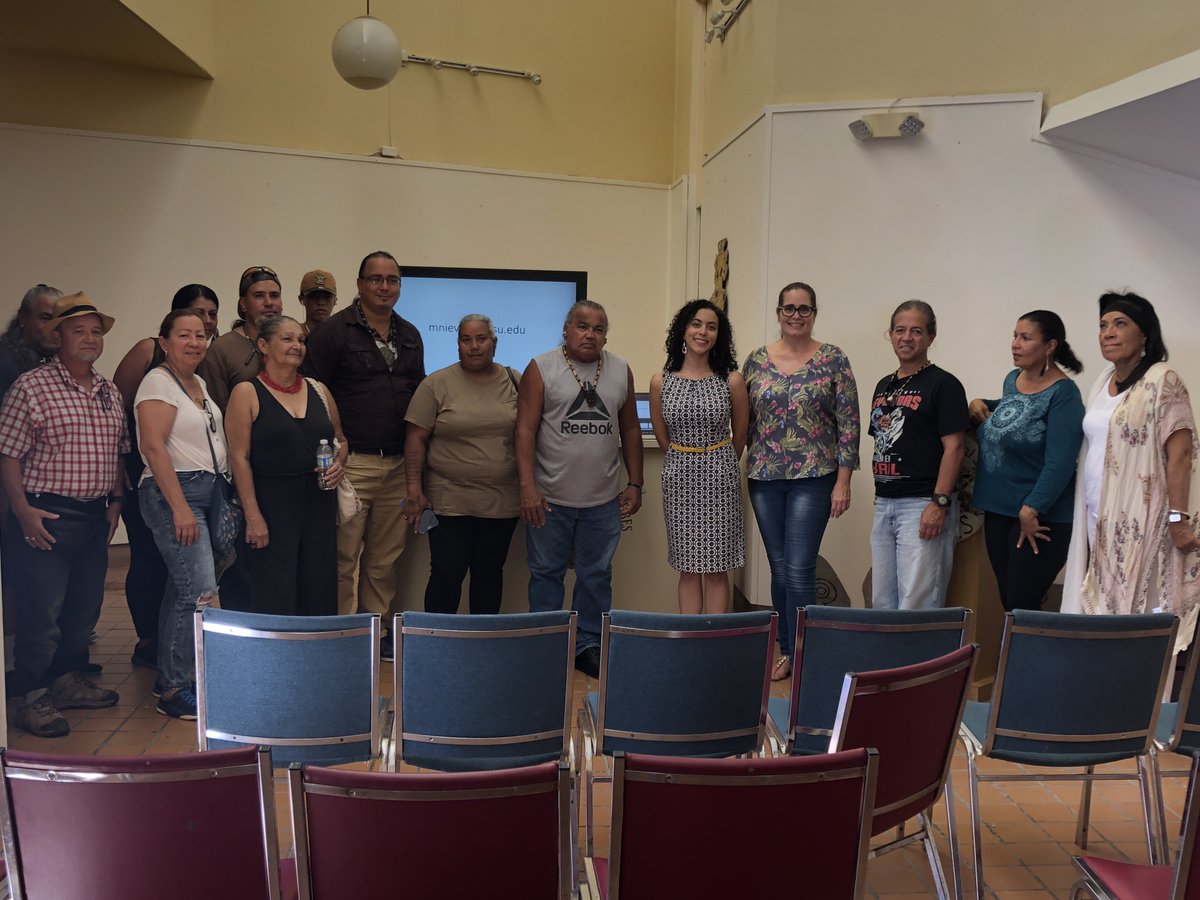
In sum, aDNA is a powerful tool 🛠️ that can be leveraged to examine and problematize our understanding of history. We can use aDNA to ask novel Qs that reframe who is represented in our past, & to craft richer and more inclusive narratives of the human story 23/ #DecolonizeDNA
But of course, only while wearing the proper PPE! 😉😷24/N END 🧵 (Img: @Blevinske and me!) 
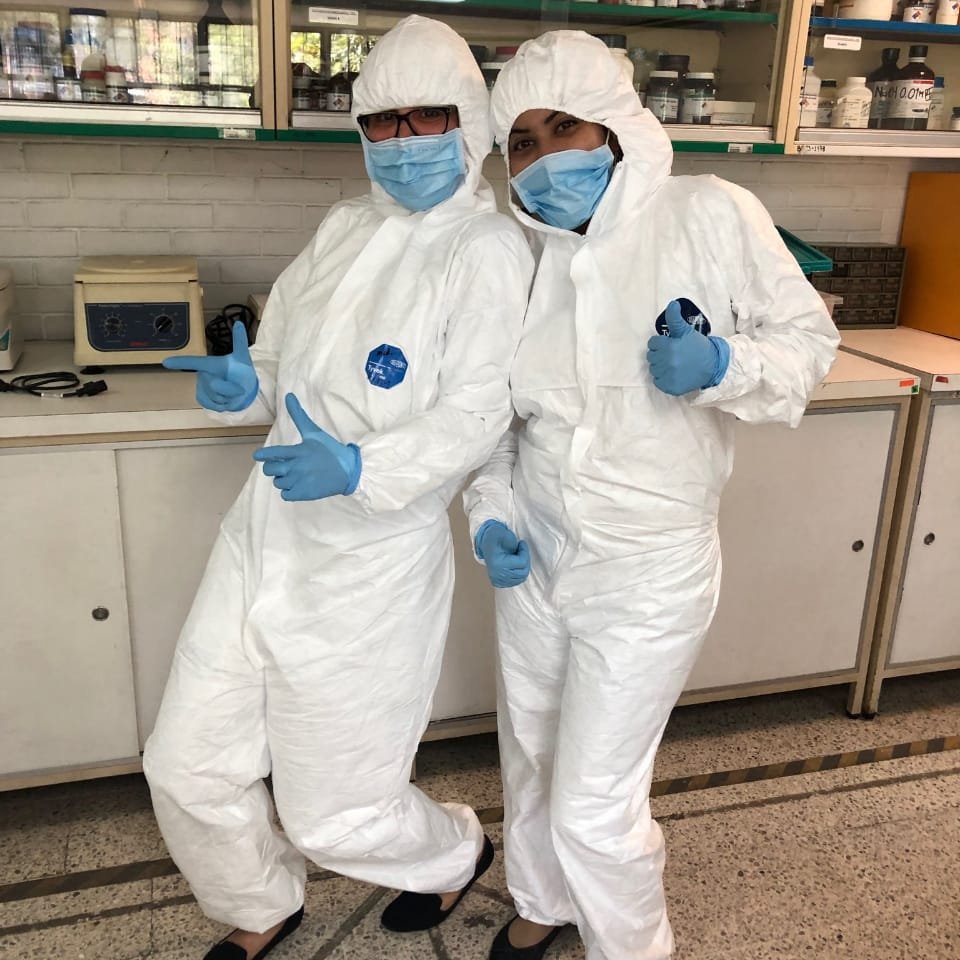
Quick Img credit to Angel Cruz for the illustration in tweet 12 and to the Ceremonial Center of Tibes for tweet 23.
• • •
Missing some Tweet in this thread? You can try to
force a refresh


